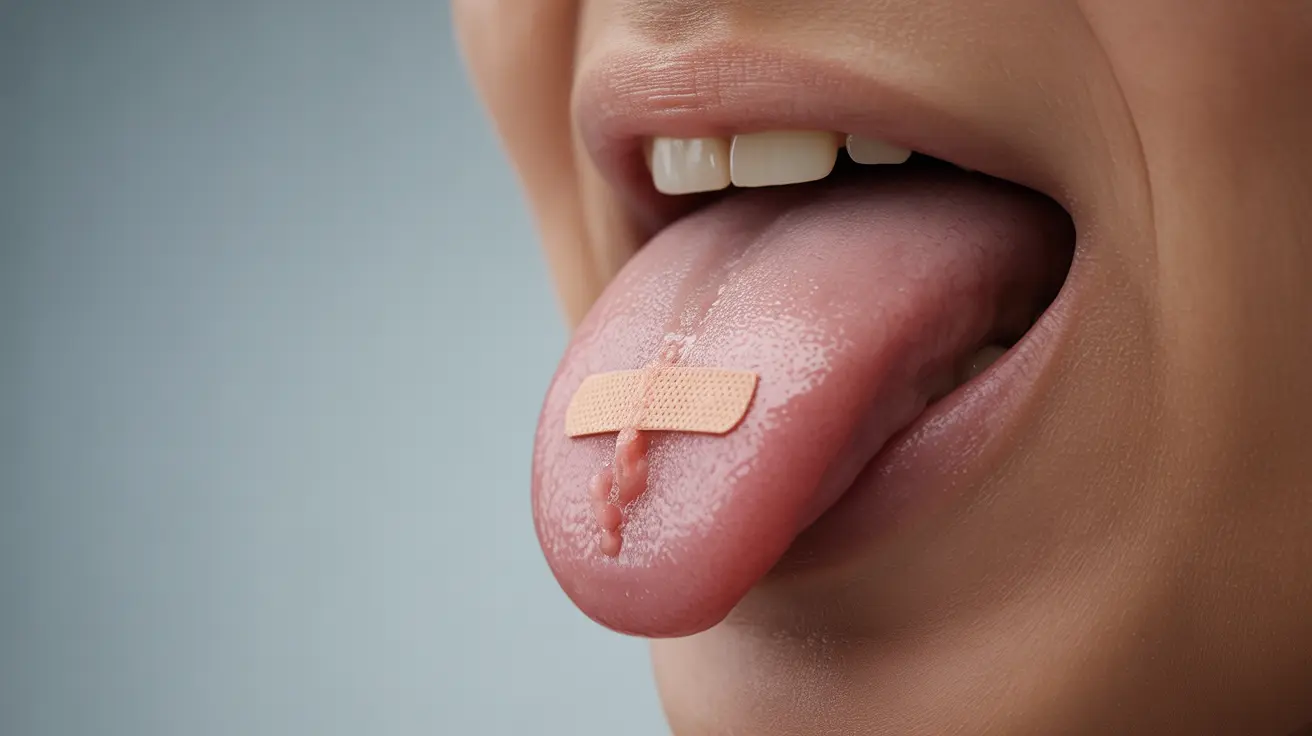A bleeding tongue can be an alarming and uncomfortable experience that may occur due to various causes, from minor injuries to more serious underlying conditions. Understanding the causes, treatments, and prevention methods for tongue bleeding is essential for maintaining proper oral health and knowing when to seek medical attention.
Whether you've accidentally bitten your tongue or are experiencing unexplained bleeding, this comprehensive guide will help you understand how to manage tongue bleeding effectively and recognize when professional medical care is necessary.
Common Causes of Tongue Bleeding
Several factors can contribute to tongue bleeding, ranging from everyday accidents to medical conditions:
Physical Trauma
The most common causes of tongue bleeding include:
- Accidental biting while eating or talking
- Sports injuries or falls
- Hot food or drink burns
- Sharp edges on teeth or dental work
- Injury from hard foods
Medical Conditions
Various health conditions may lead to tongue bleeding:
- Blood clotting disorders
- Vitamin K deficiency
- Low platelet count
- Oral infections
- Tongue ulcers or canker sores
Immediate Treatment for a Bleeding Tongue
When experiencing tongue bleeding, follow these steps for immediate care:
First Aid Steps
- Rinse your mouth with cold water
- Apply direct pressure using a clean cloth or gauze
- Hold an ice cube or ice pack against the affected area
- Avoid hot foods and beverages
- Keep the head elevated
Prevention Strategies
Taking preventive measures can significantly reduce the risk of tongue injuries and bleeding:
Daily Habits
Implement these practices to protect your tongue:
- Eat slowly and mindfully
- Avoid extremely hot foods and beverages
- Maintain good oral hygiene
- Use a soft-bristled toothbrush
- Stay hydrated to prevent dry mouth
Lifestyle Modifications
Consider these additional preventive measures:
- Wear a mouthguard during sports activities
- Address sharp edges on teeth or dental work
- Maintain regular dental check-ups
- Avoid tobacco products
- Practice stress management to prevent tongue biting
When to Seek Medical Attention
While minor tongue bleeding often resolves on its own, certain situations require professional medical care:
Red Flags
- Bleeding that persists for more than 15-20 minutes
- Severe pain or swelling
- Signs of infection
- Difficulty breathing or swallowing
- Unexplained or recurring bleeding
- Large or deep cuts
Frequently Asked Questions
What are some common causes of tongue bleeding and how can I prevent them?
Common causes include accidental biting, trauma from hot foods, sharp dental work, and medical conditions. Prevention involves eating carefully, using mouthguards during sports, maintaining good oral hygiene, and addressing any sharp edges in your mouth.
How do I treat a bleeding tongue at home, and what are some signs I should seek medical help?
Treat minor bleeding by applying pressure with clean gauze, using ice, and avoiding hot foods. Seek medical help if bleeding persists beyond 15-20 minutes, if there's severe pain or swelling, or if you have difficulty breathing or swallowing.
Can mouth ulcers on the tongue be prevented, and what treatments are available?
Mouth ulcers can often be prevented by avoiding trigger foods, managing stress, and maintaining good oral hygiene. Treatments include over-the-counter gels, prescription medications, and saltwater rinses.
What are some natural remedies to help heal mouth ulcers and prevent infection?
Natural remedies include saltwater rinses, honey application, aloe vera gel, coconut oil pulling, and chamomile tea rinses. These can help reduce pain and promote healing while preventing infection.
When should I see a doctor if I have persistent bleeding or other symptoms related to my tongue?
Consult a healthcare provider if bleeding continues for more than 15-20 minutes, if you experience severe pain or swelling, if there are signs of infection, or if you have recurring bleeding episodes without clear cause.




